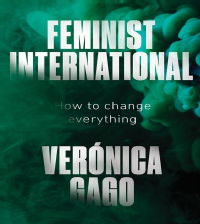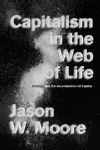Territorial Bodies in Context
Writing about web page https://warwick.ac.uk/fac/arts/hrc/confs/territorialbodies/
In the following blog post, organisers Maddie Sinclair and Charlotte Spear reflect on the inspiration behind their upcoming conference Territorial Bodies: World Culture in Crisis.
Taking place on 25th February 2023, Territorial Bodieswill critically evaluate the interconnections between bodies, territories and violence in contemporary world culture. The conference takes inspiration from the Latin American feminist transnational concept of body-territory, which has been used as a ‘strategic’ tool to engender new forms of global solidarity, linking multi-form violence at various scales (Gago, 2020: 95). As Veronica Gago discusses, the transversal concept of body-territory draws on the collective knowledge of indigenous women on the front lines of resistance against neo-extractivism (fracking, mining, agri-business). In such feminist imaginaries, the renewed conceptualisation of the ‘body-as-battlefield’ underlines the ‘organic connection’ between accumulation, heteropatriarchal and colonial violence (Gago, 2020: 84). The concept has infused the ‘practical cartography of the strike’ in the twenty-first century, offering a ‘diagnosis’ of intersecting forms of violence unleashed by financialised ‘popular indebtedness’ and neo-extractivism targeting ‘common resources’ in indigenous territories (Gago, 2020: 11). Gago describes the strategic ‘idea force’ of the body-territory as it intersects with the extractive operations of capital:
 ‘The notion ties together a perspective that explains how the exploitation of territories is structured in a neo-extractive mode today, and how that also reconfigures labor exploitation, mapping the ways the dispossession of the commons affects everyday life. That is why it is strategic in a very precise sense: it expands our way of seeing, based on bodies experienced as territories and territories experienced as bodies. That image of the body-territory reveals the battles that are occurring here and now, pointing to a field of forces that it makes visible and legible on the basis of conflicts. The body-territory is a practical concept that demonstrates how the exploitation of common, community (be it urban, suburban, peasant, or Indigenous) territories involves the violation of the body of each person, as well as the collective body, through dispossession’ (Gago, 2020: 86).
‘The notion ties together a perspective that explains how the exploitation of territories is structured in a neo-extractive mode today, and how that also reconfigures labor exploitation, mapping the ways the dispossession of the commons affects everyday life. That is why it is strategic in a very precise sense: it expands our way of seeing, based on bodies experienced as territories and territories experienced as bodies. That image of the body-territory reveals the battles that are occurring here and now, pointing to a field of forces that it makes visible and legible on the basis of conflicts. The body-territory is a practical concept that demonstrates how the exploitation of common, community (be it urban, suburban, peasant, or Indigenous) territories involves the violation of the body of each person, as well as the collective body, through dispossession’ (Gago, 2020: 86).
Territorial Bodies situates this renewed conceptualisation of ‘body-territory’ within a wider nexus of materialist thinking on the human body as a site of crisis. As Jason Moore writes in Capitalism in the Web of Life:
' The transition from capitalism and nature to capitalism-in-nature asks us to place human bodies as sites of environmental history, as bodies engaged in producing "real" commodities and reproducing the "false" commodity, labor power. From here, we- can reconceptualize capitalism: as a system whose chief contradictions turn on the antagonism and interdependence of commodity-relations and the totality of the conditions of reproduction. The human body, in this frame, becomes a crucial site of the contradictions of world accumulation’ (Moore, 2015: 26).
The transition from capitalism and nature to capitalism-in-nature asks us to place human bodies as sites of environmental history, as bodies engaged in producing "real" commodities and reproducing the "false" commodity, labor power. From here, we- can reconceptualize capitalism: as a system whose chief contradictions turn on the antagonism and interdependence of commodity-relations and the totality of the conditions of reproduction. The human body, in this frame, becomes a crucial site of the contradictions of world accumulation’ (Moore, 2015: 26).
With this in mind, Territorial Bodies considers how the ‘territorial body’ offers a critical framework for addressing what Moore describes as the ‘singular process’ of socio-ecological crisis today (2011: 136). The conference invites critical debate surrounding the strategic “idea force” of the territorial body: bodies experienced as territories, and territories experienced as bodies (Gago, 2020: 86). In particular, the conference will explore how the territorial body “expands our way of seeing”, offering a critical framework for addressing urgent social, ecological and political challenges, from ecological breakdown to the rise of statelessness, violence against women and racial exploitation. Bringing together delegates from across the world, the conference synthesises diverse and interdisciplinary research interests, from aquatic bodies to mining bodies, to embodied extractivisms and narratives of sexualised resistance. We hope to consider how cultural registrations work to locate the body as a distinct part of socio-ecological crisis, bringing new perspectives to bear on the notion of “territorial bodies” as a framework for deciphering ‘crisis’ in the twenty-first century. You can register for the conference here.
 Sue Rae
Sue Rae

 Loading…
Loading…
Add a comment
You are not allowed to comment on this entry as it has restricted commenting permissions.